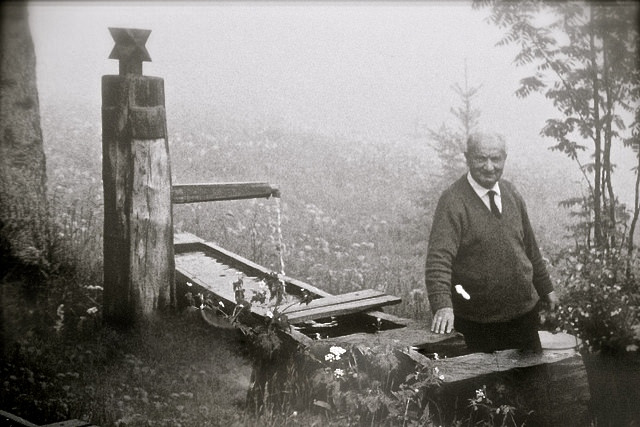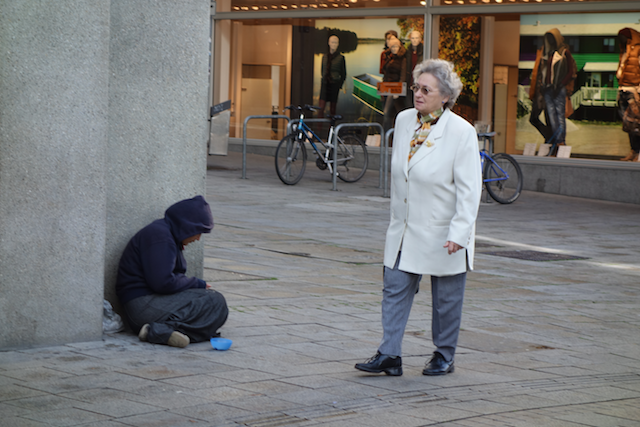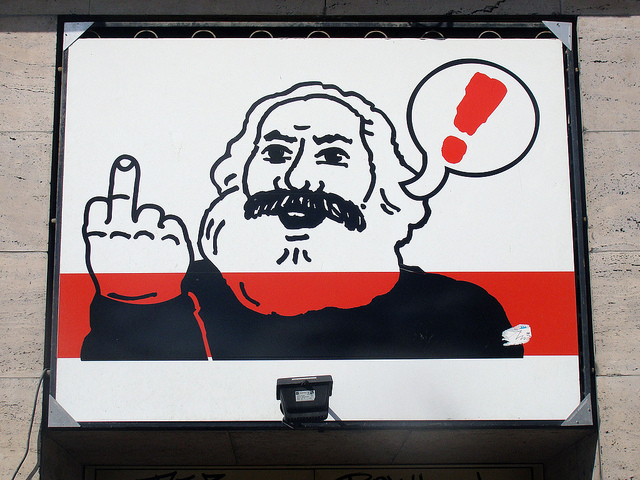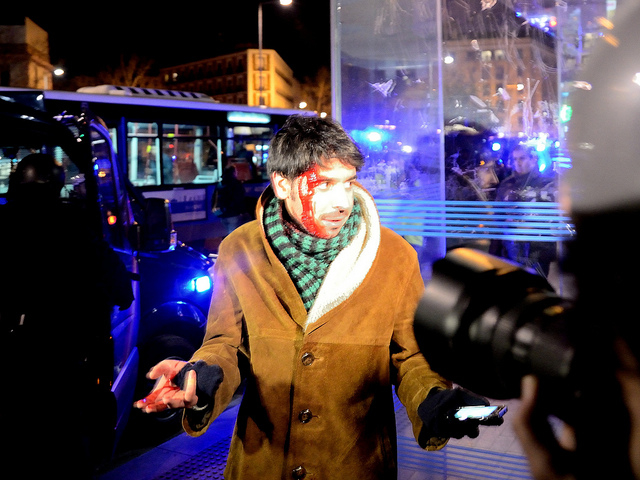European intellectuals can be divided between those who embrace history, and those fleeing from it. Marx and his intellectual progeny (up to Louis Althusser) represent the first sort. Men make their own history, as Marx once averred, but they do not do so under conditions of their own choosing. For structuralists and post-structuralists, by contrast, the role of history is, at best, secondary for understanding human life. (More…)
Author: MagadhMagadh is a teacher, writer, and musician based in Cleveland, Ohio. He is the co-editor of A Thousand Trivialities, a blog devoted to punk, metal, and alternative culture. When not writing or attending shows, he can usually be found cursing at his television during Arsenal matches.
Magadh is a teacher, writer, and musician based in Cleveland, Ohio. He is the co-editor of A Thousand Trivialities, a blog devoted to punk, metal, and alternative culture. When not writing or attending shows, he can usually be found cursing at his television during Arsenal matches.
This is a peculiar moment in American culture. Slavery doesn’t trouble the psyche of this country in normal times. Although it was a key element on which much of the wealth of the United States was once based, the history of slavery is typically viewed as the prehistory of the Emancipation Proclamation. But a spate of recent publications has pushed the issue to a new level of prominence. (More…)
In a review of Emmanuel Faye’s 2004 book Heidegger: The Introduction of Nazism into Philosophy, Harvard historian Peter Gordon wrote of the tendency of philosophy to trouble the public sphere “only when some outrage calls the very legitimacy of philosophy into question.” This specter has once again arisen with the publication of notebooks kept by the Martin Heidegger (the so-called Schwarze Hefte) between 1931 and 1938. (More…)
The publication of Capital in the Twenty-First Century, by French economist Thomas Piketty, has come at a crucial moment. In the US, there have been suggestions from the White House that income inequality is a matter of concern. Europe today has become a sort of mad scientist’s laboratory in which defunct theories from the past (austerity, the gold standard, German hegemony) are redeployed in the hope that they’ll work better this time around. (More…)
Perceptions of the crisis in Ukraine have been driven by the media. The Western press has taken a guardedly positive line toward the protestors in Maidan Square, constructing the flirtations of the Ukrainian opposition with NATO and the EU as simple struggles for freedom and the rule of law, mostly ignoring the neo-fascist presence in the movement. (More…)
In May 1903, a group of Serbian army officers fired their way into the royal palace in Belgrade. King Alexander, the scion of the Obrenović dynasty, was discovered with his wife Draga, hiding in a closet. Tricked into revealing themselves, they were hacked to death, and their partially eviscerated bodies were flung out a window. The plotters then paused for a celebratory cigarette. (More…)
Biographical writing can seem futile. This is true in a trivial sense, because on the surface, history is always shaped by the present. One of the best measures of a historian is their ability to recognize this influence, and to correct for it. Biographies are particularly subject to this limitation. Especially those of controversial political figures. (More…)
Greece has taken on the characteristics of a matinee horror show. Like other states on Europe’s periphery, the postwar success story been transformed into a mad laboratory, where technocrats experiment with the importation of disaster capitalism into the EU. You’d be forgiven for thinking it was Germany in the early 1930s, or Chile in the 1970s. (More…)
In the fall of 1992, I moved to New York to attend the New School for Social Research. Separated from my social scene in Portland, Oregon and with little money, I spent my first weeks in Manhattan feeling very much out of sorts. It was then that I reconnected with an old friend from my undergraduate days. Donny was going to Cornell Medical School uptown. He’d grown up in and around the city, and he made it his business to help me acclimate. (More…)
Tony Judt, who died in 2010 from amyotrophic lateral sclerosis, had the quality of an epigone. This is not the case because he was a historian of a stripe very much in retreat from the onslaught of post-structuralist trends since the 1970s. He was also a representative of a humanistic strain of liberalism which had, by the time of his death, long since begun to seem atavistic. (More…)
When the House and Senate budget talks got underway a few weeks ago, Paul Ryan, the GOP’s lead running dog on economic policy, reiterated the party line: The current situation is unsustainable. Negative consequences will fall hardest on the poor and the elderly. Therefore, sacrifices must be made…by the poor and the elderly. (More…)











